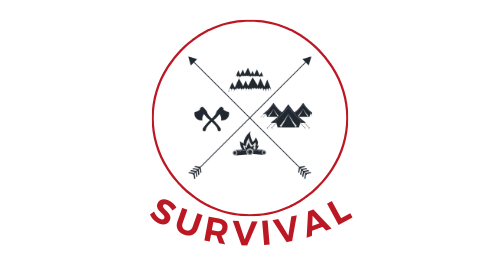Imagine this scenario: you find yourself lost in the midst of a dense forest, far away from civilization. With every passing moment, panic starts to set in as you try to remember the basic survival skills you’ve learned. But what if you had a tool that would not only help you remember those skills easily, but also provide a crucial record of your experiences? That tool is none other than a survival journal. In this article, we will explore why keeping a survival journal is so important and how it can be a lifeline in times of desperation.

Recording Experiences and Lessons
Capture Crucial Information
Keeping a survival journal allows you to capture and record crucial information from your experiences. Whether it’s documenting a successful survival tactic or noting a mistake you made, writing it down helps solidify your memory and ensures that you won’t forget important lessons learned. In the heat of survival situations, it can be easy to overlook details or forget the intricacies of certain strategies. By documenting your experiences in a journal, you can refer back to them later and avoid making the same mistakes or replicate successful tactics.
Document Survival Tactics
Surviving in challenging situations often requires quick thinking and resourcefulness. When faced with unexpected challenges, it can be beneficial to have a record of your past survival tactics and strategies. By documenting these techniques in your survival journal, you create a valuable resource that can be accessed in times of need. You can refer back to your journal to review various strategies and choose the one most suitable for the current situation. It also provides a reference point for future reflection and growth.
Remember Key Details
During intense survival situations, it’s common for stress and adrenaline to impair memory recall. Your survival journal acts as a reliable source for remembering key details. By noting specific details about your surroundings, resources, and actions taken, you can ensure that important information is not lost or forgotten. Remembering key details can be crucial for making informed decisions and revisiting successful tactics. Additionally, by recording details, you can better communicate your experiences and insights to others, fostering knowledge sharing and collaboration.
Tracking Progress and Growth
Monitor Skills Development
Keeping a survival journal allows you to monitor and track your progress in developing essential survival skills. By regularly documenting your experiences and lessons learned, you can assess how your skills are improving over time. By comparing entries written at different points in your journey, you can identify areas where you have made significant progress and areas that may still require further development. This self-assessment not only provides a sense of accomplishment but also helps you identify where to focus your efforts for continued growth.
Evaluate Survival Strategies
When facing different survival challenges, it’s important to evaluate the effectiveness of your chosen strategies. Your survival journal serves as a record of your strategies in action, enabling you to evaluate their success rate. By reviewing your journal entries, you can identify which strategies yielded the best results and those that fell short. This evaluation process helps you refine your approach and adapt your survival strategies to different scenarios. It also allows you to learn from any mistakes or shortcomings, leading to more effective decision-making in the future.
Identify Areas for Improvement
A crucial aspect of personal growth involves identifying areas where improvement is needed. By documenting your survival experiences and lessons learned, you gain insights into areas where you may be lacking or struggling. Your survival journal provides an opportunity for self-reflection, allowing you to identify weaknesses and areas that require further development. Whether it’s physical skills, mental resilience, or emotional well-being, recognizing these areas can help you focus on improving and becoming a more proficient survivor.
Preserving Valuable Knowledge
Store Important Survival Information
A survival journal serves as a readily accessible storage space for important survival information. By recording crucial information such as safe shelter locations, water sources, and edible plants, your journal becomes a trusted reference guide. In high-stress survival situations, it can be challenging to recall specific details or instructions. Having this information documented in your journal provides a reliable source that you can rely on when needed. It ensures that important knowledge is preserved and easily accessible, even in the most demanding circumstances.
Pass Down Generational Wisdom
Keeping a survival journal allows you to pass down your hard-earned wisdom to future generations. By documenting your experiences, survival strategies, and lessons learned, you create a valuable resource for your children, grandchildren, and beyond. As time passes, memories fade, and details become hazy. Your survival journal becomes a legacy of knowledge, ensuring that your experiences and insights are not lost with time. It provides an opportunity for future generations to learn from your experiences and build upon them, ultimately fostering a stronger, more resilient lineage.
Create a Personal Survival Guide
Your survival journal can serve as your own personal survival guide, customized to your unique experiences and needs. By consolidating your knowledge, observations, and techniques into one comprehensive document, you create a go-to resource tailored specifically for you. This guide can include tips, strategies, and even motivational quotes that have helped you navigate challenging situations. By having everything in one place, you save time and mental energy in future survival scenarios, knowing that you have a reliable source of information and guidance at your fingertips.
Enhancing Problem-Solving Abilities
Analyze Challenges and Solutions
One of the key benefits of keeping a survival journal is the ability to analyze and reflect upon the challenges you’ve faced and the solutions you’ve implemented. By documenting your experiences, you gain the opportunity to review and analyze the problems encountered, the thought processes behind your decisions, and the outcomes achieved. This retrospective analysis enables you to identify patterns, trends, and gaps in your problem-solving approach. By understanding your strengths and weaknesses in overcoming challenges, you can refine your problem-solving abilities and become more effective in future survival situations.
Develop Critical Thinking Skills
A survival journal encourages the development of critical thinking skills. When you document your experiences and lessons learned, you are forced to think critically about the choices you made and the outcomes that resulted. Writing down your thoughts and analysis promotes reflection and introspection, fostering a deeper understanding of your decision-making process. Over time, this exercise enhances your ability to think critically in high-stress situations, allowing you to assess potential risks, evaluate different options, and make sound decisions based on solid reasoning.
Discover Patterns and Trends
By maintaining a survival journal, you create an opportunity to discover patterns and trends in your experiences and strategies. By reviewing your past entries, you may start noticing recurring themes, successful approaches, or even areas where you consistently face difficulties. Recognizing these patterns and trends can provide valuable insights into your own behavior, preferences, and biases. Armed with this self-awareness, you can make more informed choices, adapt your tactics accordingly, and develop a nuanced understanding of what works for you and what doesn’t in various survival scenarios.

Boosting Mental and Emotional Well-being
Reduce Stress and Anxiety
In challenging survival situations, stress and anxiety can weigh heavily on your mental and emotional well-being. Keeping a survival journal provides an outlet for expressing these emotions and reducing their impact on your overall well-being. Writing down your thoughts, fears, and frustrations can be cathartic, allowing you to release pent-up emotions and alleviate stress. Additionally, the act of journaling itself can help in organizing your thoughts and gaining a clearer perspective, ultimately contributing to a sense of calmness and well-being.
Cultivate Gratitude and Reflection
A survival journal offers a space to cultivate gratitude and reflection. By taking the time to write about your experiences, you develop a deeper appreciation for the resources at your disposal and the lessons learned along the way. Reflecting on your journey, the challenges you’ve overcome, and the growth you’ve experienced fosters a sense of gratitude for the opportunities life presents. Expressing gratitude and reflecting on your accomplishments not only boosts your mental and emotional well-being but also strengthens your resilience and positive mindset.
Find Comfort in Self-expression
During trying times, finding comfort and solace can be challenging. Your survival journal provides a safe space for self-expression, allowing you to vent your frustrations, fears, or any other emotions that arise. The act of writing can be therapeutic, providing an avenue for self-reflection and emotional release. Furthermore, your journal enables you to freely express your thoughts and feelings without fear of judgment, giving you a sense of comfort and understanding. Through self-expression, you can process your experiences and emotions, fostering a sense of inner peace and mental well-being.
Anticipating and Preparing for Future Events
Predicting Potential Risks
Keeping a survival journal can help in anticipating and predicting potential risks in future survival scenarios. By documenting your past experiences, you can identify common risks and hazards encountered. This retrospective analysis enables you to develop a more informed understanding of the challenges that may arise in different situations. Armed with this knowledge, you can proactively prepare for potential risks, ensuring that you have the necessary resources, skills, and strategies in place. This proactive approach boosts your confidence and preparedness, ultimately increasing your chances of survival.
Designing Effective Emergency Plans
A survival journal provides a valuable resource for designing effective emergency plans. By reflecting on your past experiences and analyzing the decisions made, you can identify gaps or areas where your emergency plans may have fallen short. This self-assessment allows you to refine and improve your emergency plans, ensuring that you are well-prepared for future events. Additionally, your survival journal serves as a detailed record of your emergency plans, providing a quick reference during high-stress situations. This meticulous planning enhances your ability to respond effectively, minimizing risks and maximizing your chances of survival.
Implementing Lessons Learned
One of the primary purposes of a survival journal is to learn from your experiences and implement those lessons in future situations. By reviewing your past entries, you can identify specific lessons learned and areas where improvement is needed. Armed with this knowledge, you can implement changes, adapt your strategies, and enhance your preparedness for future events. Implementing lessons learned not only increases your chances of survival but also empowers you with a sense of control and mastery over your own destiny.
Documenting Survival Gear and Supplies
Keep Inventory of Essential Items
A survival journal can serve as an inventory for your essential survival gear and supplies. By documenting each item, you create a comprehensive list that can be easily referenced in times of need. Having a clear inventory of your gear ensures that you know what resources are available and where they can be found. This organized approach eliminates the risk of forgetting essential items and allows for efficient planning and preparation. Regularly updating your inventory in your survival journal ensures that you are always aware of your available resources, enabling you to make informed decisions during survival situations.
Track Expiration Dates and Usage
In survival scenarios, the shelf life of your supplies and the frequency of their usage are crucial factors. Your survival journal provides a space to track the expiration dates of perishable items and the usage of essential resources. By regularly reviewing and updating this information, you can ensure that your supplies are always within their usable time frame. This attention to detail prevents the risk of relying on expired or ineffective resources, thus increasing your chances of survival. Additionally, tracking usage allows you to gauge resource consumption and plan for replenishment ahead of time.
Improve Preparedness and Efficiency
By documenting your survival gear and supplies in your journal, you enhance your preparedness and efficiency in survival situations. Your survival journal acts as a centralized guide, giving you a clear overview of your available resources. This comprehensive knowledge enables you to make informed decisions, strategically allocate your supplies, and optimize their usage. Furthermore, by tracking expiration dates and usage, you can proactively identify areas where replenishment or conservation measures are necessary. This level of preparation and efficiency ensures that you are well-equipped and confident, increasing your overall chances of survival.
Gaining a Sense of Control and Empowerment
Maintain a Proactive Mindset
Keeping a survival journal cultivates a proactive mindset, one focused on planning, preparation, and action. By documenting your experiences, lessons learned, and strategies, you foster a sense of control over your own circumstances. You become an active participant in your survival journey, rather than a passive observer. This proactive mindset acts as a driving force, motivating you to continuously improve, refine your skills, and anticipate future challenges. By taking ownership of your survival preparedness, you empower yourself with the confidence and resilience needed to thrive in adverse situations.
Boost Confidence and Self-reliance
A survival journal serves as a testament to your experiences and growth, boosting your confidence and self-reliance. By documenting your successes and lessons learned, you build a foundation of knowledge and expertise. Regularly reviewing your past entries and reflecting on your progress reinforces the fact that you have successfully overcome challenges and adapted to difficult situations. This boost in confidence strengthens your belief in your own abilities and fosters self-reliance. Armed with this self-assurance, you approach survival scenarios with a mindset rooted in resilience and empowerment.
Overcome Helplessness and Fear
Helplessness and fear often accompany survival situations, but a survival journal can help you overcome these emotions. By documenting your experiences, tracking your progress, and implementing lessons learned, you shift the focus from fear to action. The process of writing and analyzing your journey allows you to gain a sense of control and purpose. As you document successful strategies and lessons learned from failures, you develop a toolkit of solutions, which increases your ability to navigate and overcome challenges. This gradual accumulation of knowledge and skill empowers you to face adversity with confidence and resilience.
Fostering Creativity and Innovation
Brainstorming Alternative Solutions
Keeping a survival journal encourages the exploration of creative and innovative solutions to challenges. As you document your experiences and strategies, you are prompted to reflect on different approaches that could have been taken or alternative solutions that could have been employed. This reflection process fosters a mindset of creativity and out-of-the-box thinking. By actively engaging your problem-solving skills, you open yourself up to opportunities for unique solutions and inventions that could further enhance your survival toolkit. Embracing creativity and innovation can lead to unexpected breakthroughs and increased adaptability in challenging situations.
Recording Inventive Survival Techniques
In unpredictable survival scenarios, the ability to come up with inventive survival techniques can be crucial. Your survival journal provides a space for recording and documenting these innovative techniques. Whether it’s a unique shelter construction idea or a resourceful method of food procurement, writing them down ensures that these valuable survival strategies are not forgotten. Recording inventive techniques allows you to revisit and refine them, building upon your discoveries in subsequent experiences. It also allows you to share these innovative ideas with others, inspiring creativity and resourcefulness in the broader survival community.
Inspire Others with Unique Ideas
Keeping a survival journal not only benefits yourself but also serves as an opportunity to inspire others with your unique ideas and approaches to survival. By documenting your experiences and strategies, you create a platform for sharing your knowledge and insights. Your journal becomes a source of inspiration for fellow survival enthusiasts, novices, and even experts. The creativity and innovative thinking demonstrated in your journal can spark new ideas, generate discussions, and foster a sense of camaraderie within the survival community. By sharing your unique ideas, you contribute to the collective knowledge and create a ripple effect of inspiration and innovation.
Connecting with Like-minded Individuals
Share Experiences and Lessons
A survival journal serves as a powerful tool for connecting with like-minded individuals in the survival community. By sharing your experiences and lessons learned, you create opportunities for learning, growth, and collaboration. Your survival journal can be a platform for exchanging stories, insights, and advice with others who have faced similar challenges. This sharing of experiences fosters a sense of community and unity, as individuals come together to support, encourage, and learn from one another. By connecting with like-minded individuals, you not only expand your own knowledge base but also contribute to the growth and resilience of the survival community as a whole.
Join Survival Communities
A survival journal can serve as an entry point to joining and engaging with survival communities. By sharing snippets or excerpts from your journal online or in local groups, you can connect with others who have a passion for survival and preparedness. These communities offer a wealth of knowledge, resources, and support. Engaging with them enables you to learn from others, exchange ideas, and find inspiration for your own survival journey. Joining a survival community allows you to expand your network, gain different perspectives, and build relationships with individuals who share your passion and goals.
Collaborate on Projects and Research
By sharing your survival journal and engaging with like-minded individuals, you open the door to collaborative projects and research opportunities. Survival communities often come together to work on collective projects, such as developing new survival techniques, conducting research, or creating comprehensive survival guides. Through collaboration, you can leverage the collective wisdom and skills of the community to tackle complex challenges and explore new frontiers in survival. By actively participating in collaborative endeavors, you not only contribute to the advancement of knowledge and innovation but also form lasting connections with individuals who share your passion and values.
In conclusion, keeping a survival journal is essential for capturing crucial information, tracking progress and growth, preserving valuable knowledge, enhancing problem-solving abilities, boosting mental and emotional well-being, anticipating and preparing for future events, documenting survival gear and supplies, gaining a sense of control and empowerment, fostering creativity and innovation, and connecting with like-minded individuals. By diligently recording your experiences, lessons learned, and strategies, you create a personal survival guide that serves as a valuable resource in times of need. Embracing the practice of journaling is not only beneficial for your own survival journey but also contributes to the growth and resilience of the broader survival community. So grab a pen and notebook, start documenting your experiences, and embark on a journey of self-discovery and empowerment through your survival journal.

